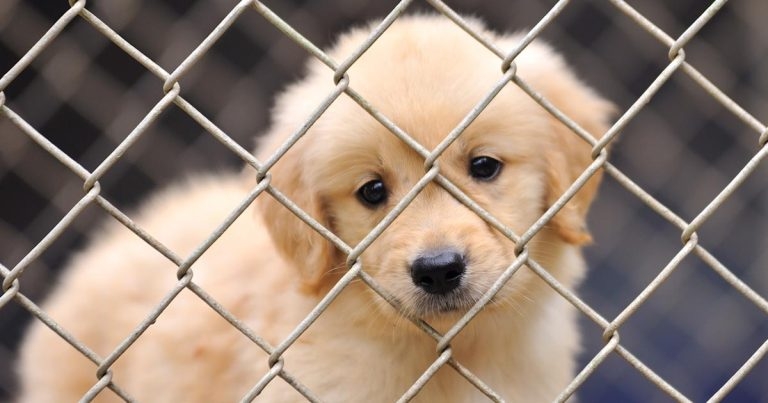7 Apr 2020
From now on, anyone wanting to buy or adopt a companion animal younger than six months will need to deal directly with a breeder or recognised animal rehoming centre.

Image © sommai / Adobe Stock
Backstreet traders and puppy farmers have seen one of the most significant challenges to their profiteering with the long-awaited introduction of “Lucy’s Law”.
The legislation, which came into effect yesterday (6 April), bans the commercial sale of puppies and kittens younger than six months old in England by a third party.
It means anyone wanting to buy or adopt a companion animal younger than six months would need to deal directly with the breeder or a recognised animal rehoming centre, rather than a pet shop or commercial dealer.
The legislation is also designed to deter smugglers who abuse the Pet Travel Scheme to bring young puppies and kittens into the UK to be sold. Smugglers are thought to have made millions of pounds from the unscrupulous trade.
The law is named after a cavalier King Charles spaniel called Lucy – a breeding bitch on a puppy farm in South Wales. Lucy suffered severe health and welfare issues before being rescued and adopted in 2013 by Lisa Garner.
The dog’s hips had fused together, and she had a curved spine, bald patches and epilepsy after years of mistreatment. She’d been kept in a cage much of her life and was no longer able to have puppies. However, the animal found a home with Ms Garner for three years before dying in 2016.
Ms Garner has tirelessly campaigned with TV vet and animal rights campaigner Marc Abraham to prevent further maltreatment of puppy farm dogs. Their efforts were key to driving Lucy’s Law on to the statute books.
With overwhelming public support demonstrated, Lucy’s Law is being urged to be adopted by the devolved Welsh and Scottish governments.
On the introduction of the law, BVA president Daniella Dos Santos said: “Puppy farming and illegal importation have serious detrimental effects on the health and welfare of bitches and their litters.
“Vets see first-hand the tragic consequences that can result from poorly bred puppies, and support the principle that puppies and kittens should not be sold via third parties.
“However, this is a very complex area that requires a holistic approach, tackling all sources of supply and demand for pets, to reduce the risk of any unintended consequences such as driving the problem underground.”
RSPCA chief executive Chris Sherwood said: “We’re incredibly pleased the Government is introducing a ban on third-party sales of puppies and kittens. We believe this, along with tougher licensing regulations that were introduced in 2018 and better education of the public on how to buy puppies responsibly, will help to crack down on this cruel trade.”